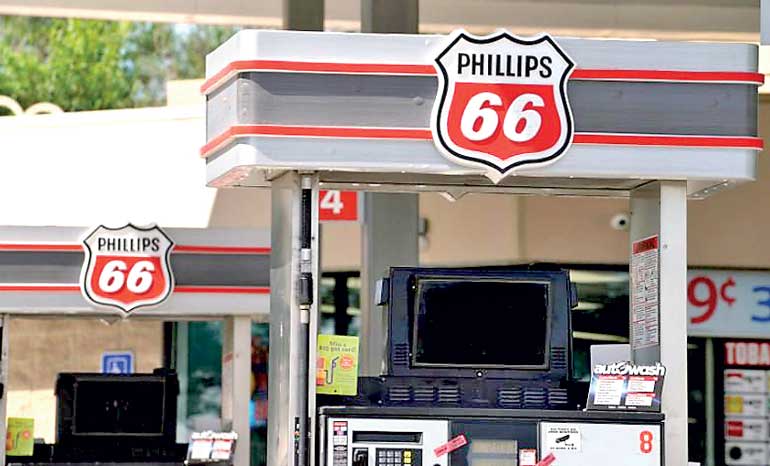Friday Feb 20, 2026
Friday Feb 20, 2026
Tuesday, 24 October 2017 00:00 - - {{hitsCtrl.values.hits}}

New York (Reuters): U.S. refineries from Ohio to Minnesota are capitalising on access to cheap crude from Western Canada and North Dakota oilfields, helping their region break a historic dependence on fuel from the Gulf Coast while redrawing oil trade maps.
Since the early 2000s, crude and fuel flows from the Gulf Coast into the U.S. heartland have been cut in half, as crude coming from Canada and North Dakota has pushed U.S. Midwest refining activity to record levels. In 2016, Midwest refining capacity rose to 3.9 million barrels per day (bpd) of crude, the highest annual volume on record.
Midwest refiners such as Marathon Petroleum Corp, Phillips 66, BP PLC and Husky Energy have invested billions of dollars on new units capable of turning sludgy crude from Canada into gasoline and diesel. Investments in the Dakota Access Pipeline and other avenues have helped bring in shale oil from North Dakota.
“Ten years ago, we were one million barrels per day short on products, with the Gulf Coast supplying the product. Today, the midcontinent is flush with products,” Marathon Petroleum Chief Executive Gary Heminger said in a recent Reuters interview at the company’s Findlay, Ohio, headquarters.
Yet analysts warned that weakening U.S. gasoline demand will make it challenging for Midwest refiners to sell their growing output. The Midwest is land-locked, making it hard to get products to new markets, especially as rival refiners defend their turf. Philadelphia area refiners are currently fighting efforts to reverse a pipeline so Midwest companies can move fuel to western Pennsylvania.
Changing flows
For years, Gulf refiners with access to cheaper crudes could underprice their Midwest rivals in Chicago, Indianapolis and other cities in the region. Traders made easy money sending gasoline north in the summer. Now, Midwest plants can compete more effectively thanks to booming production in western Canada and North Dakota of crude that routinely sells at a discount against the U.S. benchmark price.
“The Midwest is well positioned to supply its region and parts of southern Canada, and will even have excess supplies to send to the East Coast. It’s in a good spot,” said Mark Routt, chief economist at KBC Advanced Technologies.
At the turn of the century, the Midwest received 3.4 million bpd of crude and refined products from the Gulf. In 2016, that figure was halved. Chicago gasoline peaked at a premium of 14 cents a gallon versus the future contract this summer, much less than the summer premiums of nearly 40 cents in 2014 and 2015..